#Captain America of the Railways
Explore tagged Tumblr posts
Text

From Avengers Academy #13. Written by Anthony Oliveira, art by Alba Glez, Elisabetta D'Amico, and KJ Diaz
Very good meta-joke here...
I think this may be my fave issue of Avengers Academy so far? It's not the most emotionally invocative one, but I love Janet Van Dyne and love a good refresher issue after a high-stakes climax. They're kind of a lost art in the current high-pace publication industry imho.
Also!!! In case it wasn't explicit enough before, Shela's going to ask out Brielle! So that's fun...

This panel also has another two of my favourite things: queer characters wearings impractical gloves and a pym-powered hero casually sitting on someone's shoulders. Truly, this issue was made for me specifically.
Lastly, Moon Girl has gotten her cartoon outfit!!!

It's a fantastic look for her and I'm glad to see it making its way into the comics. I really hope that carries over to her print appearances!
So yeah. Avengers Academy remains great. Please go on Marvel Unlimited and read it so we keep getting more of it.
#avengers academy#janet van dyne#the wasp#aaron fischer#captain america of the railways#shela sexton#escapade#brielle brooks#bloodline marvel#moon girl and devil dinosaur
83 notes
·
View notes
Text










So Avengers Academy take 2! Arcade probably definitely won’t kidnap several students and put them in a Battle Royale ripoff this time, maybe!
#yes I’m still irritated#avengers academy unlimited#captain marvel#carol danvers#kid juggernaut#moon girl#escapade#mr fantastic#jeff the land shark#red goblin#bloodline#black panther#she hulk#captain america of the railways#spider man#billy kaplan#Shuri
83 notes
·
View notes
Text


















The All-New Avengers Academy is having Iceman teaching the class as a guest teacher. As he teaches the kids some lessons about Superhero Accounting, they get bored with it until he suggests for another lesson - "Applications of Advanced Emergency Architecture" which means ice-slides. Meanwhile, Hazmat is not thrilled about being invited to the All-New Avengers Academy as a teacher's assistant for the students because she is not in full control of her powers and the New Avengers Academy reminded her of her trauma about her time in the old Avengers Academy where the bad things happened to her and her classmates. While Hazmat and Carol Danvers are talking, the All-New Avengers Academy students (especially Kid Juggernaut) are having a fun time with the ice-slide.
Avengers Academy: Marvel's Voices Infinity Comic #16, 2024
#Iceman#Bobby Drake#X Men#XMen#Hazmat#Jennifer Takeda#Kid Juggernaut#Justin Jin#Captain America of the Railways#Aaron Fischer#Bloodline#Brielle Brooks#Escapade#Shela Sexton#Red Goblin#Normie Osborn#Moon Girl#Lunella Lafayette#Avengers Academy#Captain Marvel#Carol Danvers#Avengers#the avengers#marvel
48 notes
·
View notes
Text



A few of my inks of Justin and Aaron from Avengers Academy #3! Love these good boys!
#since I almost exclusively worked in comics this year I’m gonna be sharing some of that work over the next little while#avengers academy#Justin Jin#kid juggernaut#aaron fischer#captain america#captain America of the railways#marvel#comic#comics#art
28 notes
·
View notes
Text

Comic - Avengers Academy: Marvel's Voices Infinity Comic #01 (2024)
Art by Carola Borelli
#Comics#Marvel Comics#Avengers Academy#Avengers Academy Marvel's Voices Infinity Comic#Marvel's Voices#Infinity Comic#Infinity Comics#Art#Marvel#Moon Girl And Devil Dinosaur#Red Goblin#Kid Juggernaut#Bloodline#Escapade#Captain America Of The Railways#Avengers#Carola Borelli#2024#2020s#20s
35 notes
·
View notes
Text

Sluts
12 notes
·
View notes
Text















27 notes
·
View notes
Text









Also had to make a few little sprite dolls of some of my favorite Marvel blorbos- We got Matt Murdock/Daredevil, Longshot, Rachel Summers (and the Phoenix Force), and Aaron Fischer/Captain America of the Railways
#marvel#matt murdock#daredevil#longshot#rachel summers#phoenix#aaron fischer#captain america of the railways#sprites#pixels#my stuff#betsybugaboo original content#happy new year!
9 notes
·
View notes
Text
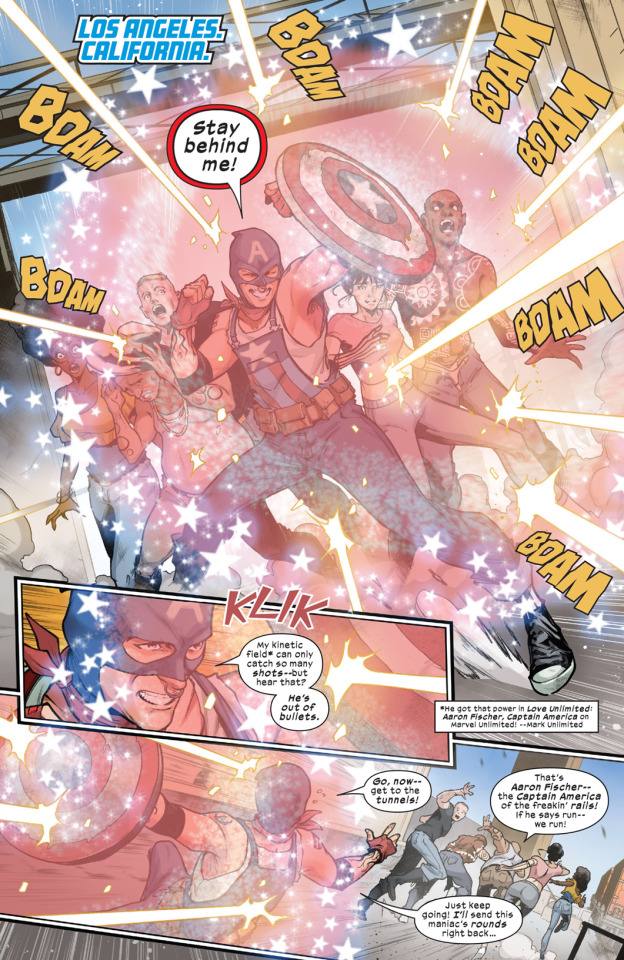
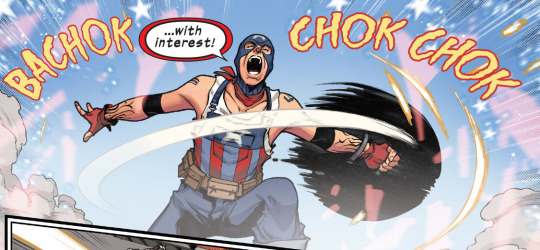
Astonishing Iceman #3 - "Out Cold III" (2023)
written by Steve Orlando art by Vincenzo Carratu & Java Tartaglia
#captain america of the railways#aaron fischer#marvel#marvel comics#wednesday spoilers#spoilers#comic spoilers
83 notes
·
View notes
Text
Has anyone else been reading the Avengers Academy comic on Marvel Unlimited? I love it so much. There's so many queer characters, including trans fem and trans masc characters. It makes me feel so happy and seen. If you're able to, go read it! It's still being updated and I think it will make you feel a bit better.

(This is Captain America of the Railways and Mysterium (They're so cute!))
#avengers academy#marvel comics#marvel#queer#trans#its so cute it makes me so happy#captain america of the railways#mysterium#lgbtqia
4 notes
·
View notes
Text

Captain America: Cold War Omega 1 - Pride Variant cover by David Talaski
#captain america#captain america of the railways#aaron fischer#this is my fave pride variant cover from this year
28 notes
·
View notes
Text

From Avengers Academy #27. Written by Anthony Oliveira. Art by Pablo Collar and KJ Diaz.
If I'm ranking comics based on the number of moments that I could see going viral out of context on social media, the Avengers Academy Holiday Special certainly has a lot of them lol.

Congrats to Blackheart for trying to learn what humanity is like by becoming a cocky twink. Congrats to Normie Osborn for not really understanding what communism is.

Congrats(?) to Norman Osborn for having apparently called Scrooge a cuck enough times that his grandson internalized it.

Congrats to Nate for having apparently just made himself a member of the student body without anyone noticing or objecting. (Hazmat and Carol do eventually do both, but like. Dude just hid among the students for a hot minute with no complaints.)

And, most importantly, congrats to Bloodline and Escapade for still being gay.

Happy Holidays everyone!
#avengers academy#wednesday spoilers#justin jin#kid juggernaut#normie osborn#rascal#blackheart#aaron fischer#captain america of the railways#nate richards#iron lad#kid immortus#jennifer takeda#hazmat#shela sexton#escapade#brielle brooks#bloodline marvel
49 notes
·
View notes
Text





Twink Blackheart
#avengers academy#Blackheart#Mephisto twinked him#moon girl#red goblin#kid juggernaut#mettle#kid immortus#hazmat#captain america of the railways#bloodline#escapade
14 notes
·
View notes
Text
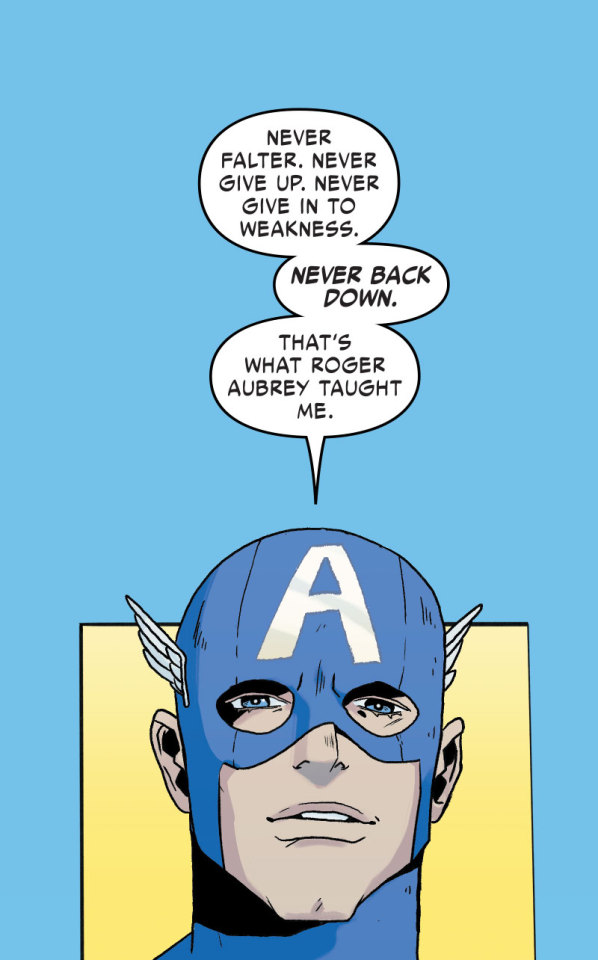


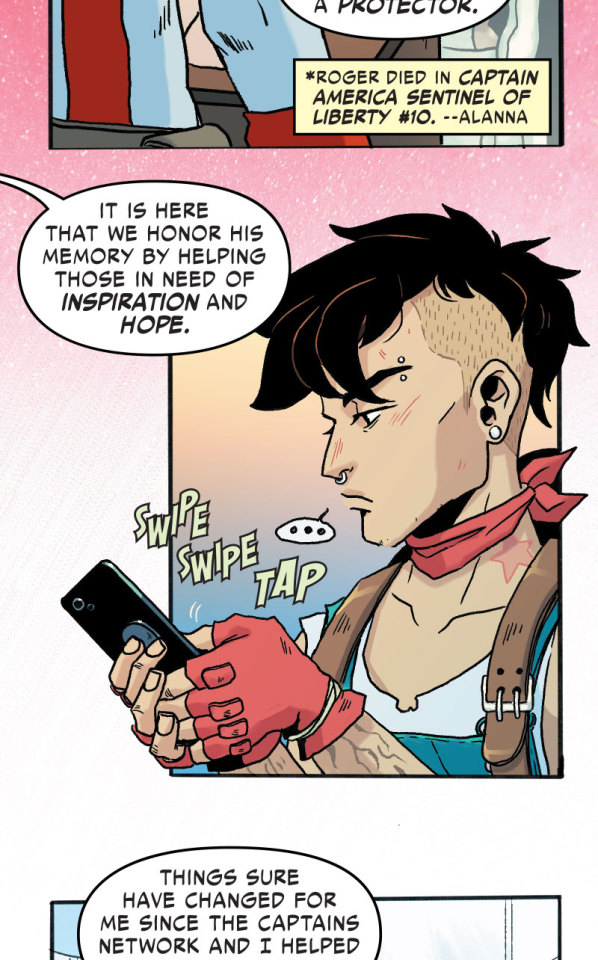


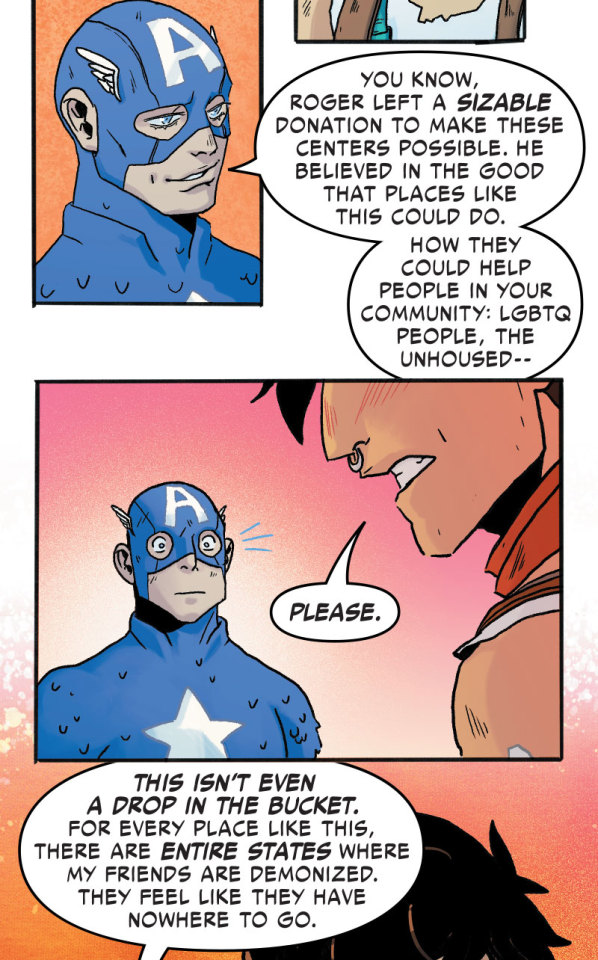
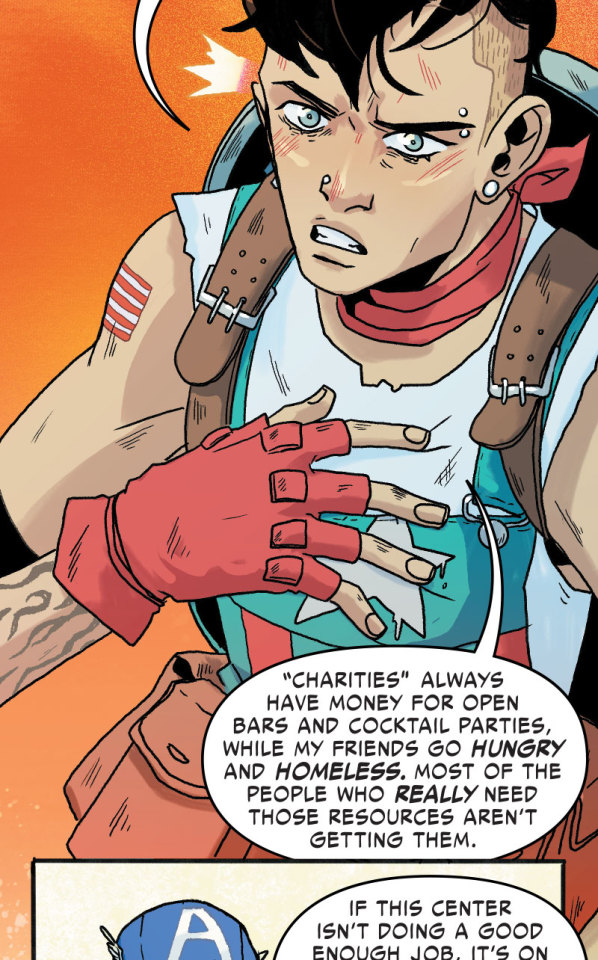
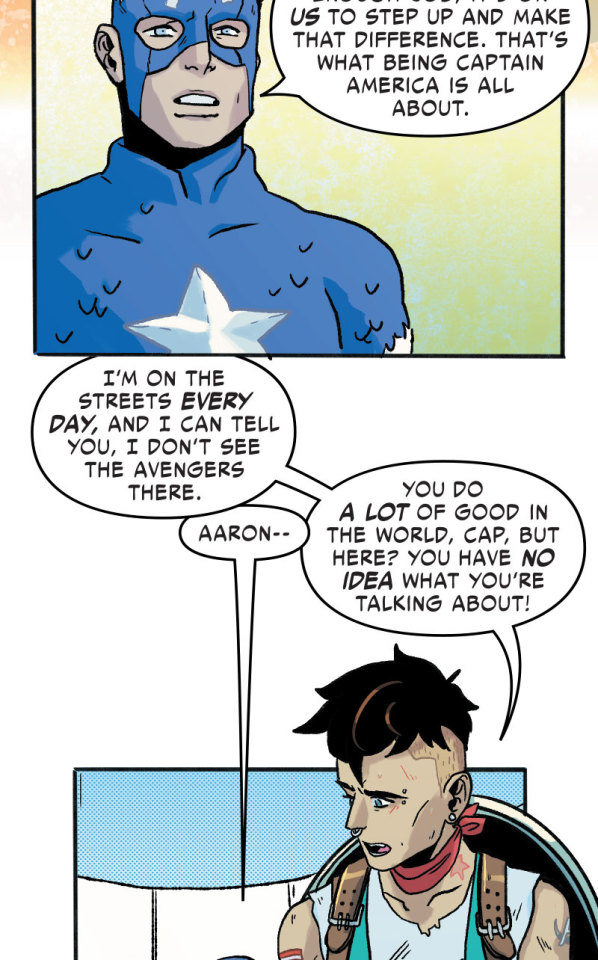

Captain America does a eulogy speech for Roger Aubrey (a.k.a Destroyer) the first gay superhero of the golden age at the funeral where the patriotic and the LGBT superheroes have attended. Meanwhile, Aaron Fischer is disillusioned with Captain America for not only letting the death of the gay superhero to happen, but also for the hypocritical condescending charities which are not doing enough work to the poor, LGBT and disadvantaged while holding big fancy parties.
Love Unlimited Infinity Comic #49, 2023
#Captain America#Steve Rogers#Avengers#Captain America of the Railways#Aaron Fischer#Agent 13#Sharon Carter#Viv Vision#Kyle Jinadu#Northstar#too many to tag#Love Unlimited#infinity comic#infinity comics#marvel
89 notes
·
View notes
Photo
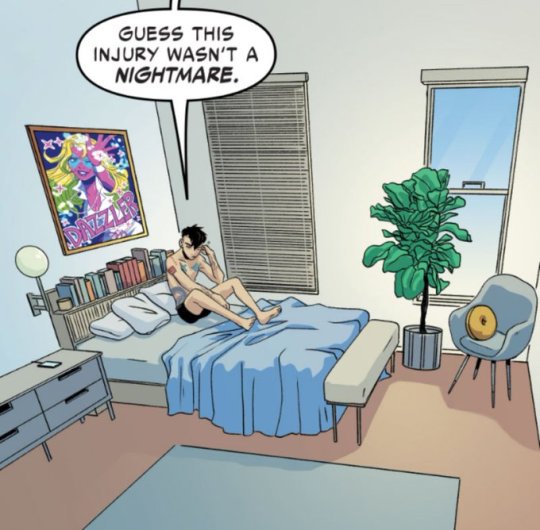
#aaron fischer#love unlimited infinity comic#dazzler#alison blaire#cameo queen#captain america of the railways
10 notes
·
View notes














